Why does aphid appear on dill and how to treat it?
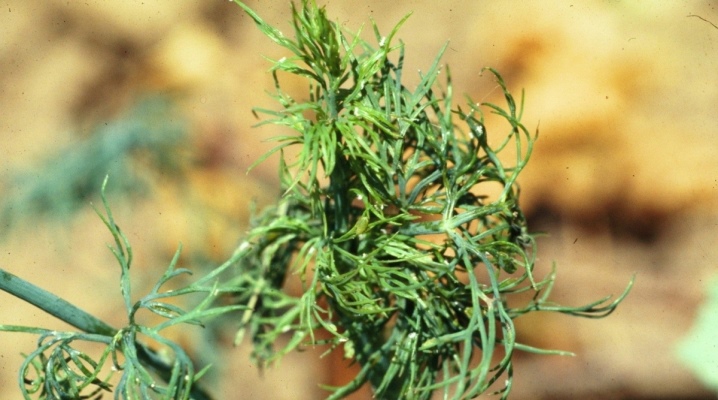
Not a single hot dish on our table is complete without the addition of herbs. Dill is a very spicy and healthy seasoning. The plant itself is not susceptible to specific pests, but due to the fact that it grows right above the ground all summer long, many parasites are not averse to feasting on it. One of these pests is aphid. In this article, we will analyze what it is and how to deal with it.
Description
Aphids belong to the order of Homoptera, in which there are more than 3500 species. It is the most common representative of the class of insects that suck out all vital juices from young shoots and thereby carry viruses.
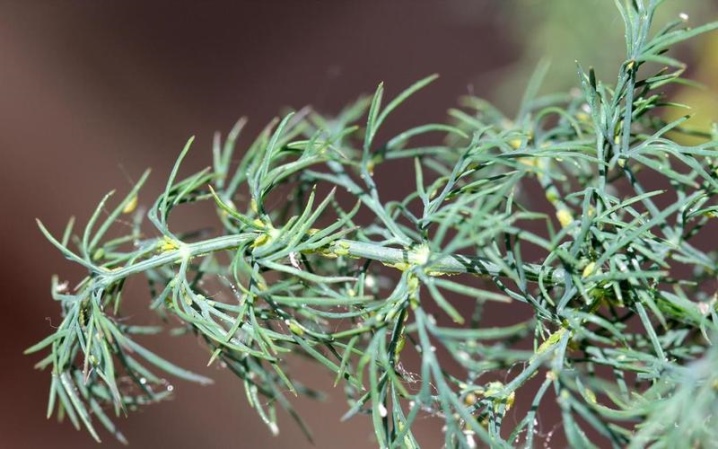
The appearance of the insect is very diverse and depends on the species. The body can be egg-shaped, semicircular or oblong, and sizes range from 0.3 mm to 0.8 mm with soft transparent integuments. The color of the body is similar to the color of the plant on which the insect is located. It can be covered with tubercles, fluff or hairs of different lengths and densities. There are antennae on the forehead, which are responsible for hearing and touch, and the aphid also has excellent vision.
Causes and signs of appearance
The culprits in the appearance of aphids are ants that feed on its sap. It emits a special liquid with a sweetish aftertaste, and therefore attracts insects. To provide themselves with constant food, the ants must carry the aphids along with them to the area where they will settle themselves. In addition to ants, aphids can be brought in by a person himself, an animal from other beds or from infected seedlings.
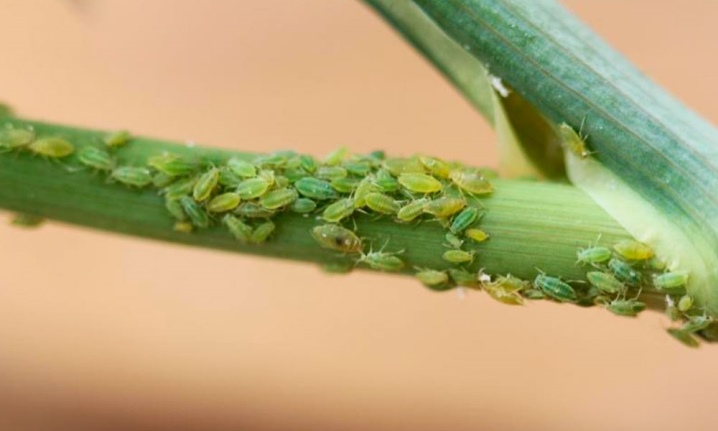
To recognize the aphid attack in time, you must first of all pay attention to whether there are ants nearby. If their activity is strong enough and the plant is covered with sticky dew, then this means that the aphid is already eating dill. The insect, in the process of its vital activity, sheds old scales, similar to ash. If you carefully consider the dill shoot, you can see a colony of pests that form mucous secretions. They attach themselves to the juiciest parts of the dill and suck out the juice.
Because of this, the tops of the plant change shape and wither, as a result, the culture dies. Greens turn yellow, spots and mucus appear. The released liquid is an ideal breeding ground for insects and fungi. Among other things, this sticky layer interferes with the process of photosynthesis, and this negatively affects the plant.
Aphid chemicals
If there are signs of aphids on the dill, then chemical preparations will help to quickly save it. The most effective against the pest are chemical compounds that penetrate the tissues of the plant and protect it from the inside. Pests die within 1-2 days, because the agent is toxic for them, but for humans it is absolutely harmless.
Confidor Extra is an intestinal pesticide against insects and gnawing pests. Effective both for spraying and for soil application. The product is highly active, resistant to moisture, has systemic properties that actively fight against hidden pests in the garden. The substance can be used together with fertilizers.
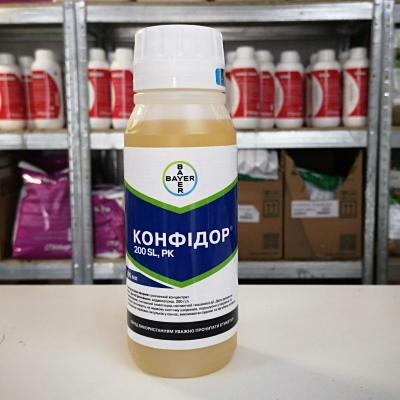
The preparation "Tanrek" is also an enteric-contact insecticide, used for both garden and indoor pests, especially aphids. Imidacloprid acts on nerve receptors and causes paralysis and death in them.Has a protective period of up to 30 days, is highly stable, the effectiveness of the drug does not depend on weather conditions and temperature changes. It is perfectly combined with Fitosporin and some fungicides.
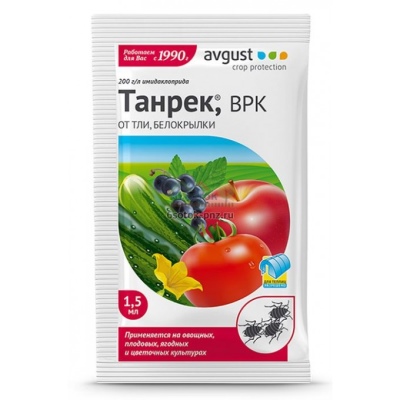
Without the need, insecticides should not be abused, since drugs, together with harmful insects, kill useful ones. When working with a solution, you must strictly adhere to the recommendations.
If aphids attack the dill, then the drug "Biotlin" will help to destroy it and clear the shrub. The components of the drug have a depressing effect on the nervous system of already mature aphids, and also destroy their eggs and larvae. The substance is strictly forbidden to be mixed with others.
According to the instructions, the product is diluted in warm water. They need to sprinkle the dill in dry weather 6 hours before watering, and if it rains after spraying, then the procedure is repeated.
To quickly remove aphids will help "Karbofos", which is considered a popular and inexpensive remedy. It is used for both single and massive damage to the site. The use of this drug should be alternated with other chemicals, since the use of only "Karbofos" can cause addiction of pests. Any of the chemicals also destroys beneficial insects, so use them in case of severe damage, when other means are powerless.
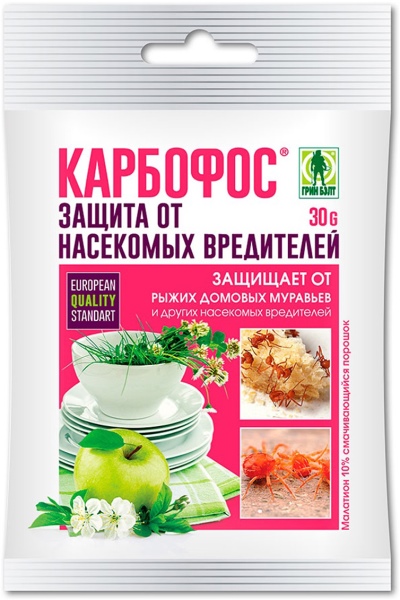
Biological control methods
Other drugs also help fight aphids. More gentle are biological agents that have a delayed effect, in contrast to chemicals. Basically, they are alternated with chemicals, since the use of some biological agents can aggravate the aphid population.
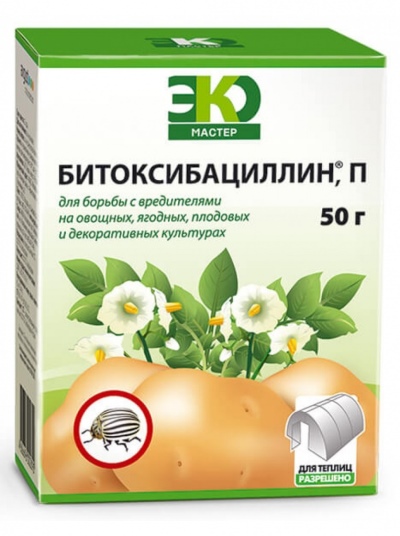
The drug "Bitoxibacillin" is an intestinal pesticide, effective against aphids. Does not possess toxicity, accumulates in plants and fruits, but guarantees environmentally friendly and harmless use for humans. It is used at any stage of plant development, combined with chemical pesticides and biological preparations. The plant can be eaten within a few days after processing.
Overview of folk remedies
Infusions and decoctions of herbs
For the safe destruction of pests, various solutions and infusions are made, which can be quickly prepared at home and process the bush every week. An effective remedy for controlling aphids is a tincture made from tobacco or tobacco dust. To do this, you need dry tobacco leaves, weighing 200 g, pour 5 liters of water and leave for about a day, then add another 5 liters and boil over a fire for about 2 hours.
Soap
- Potato greens are also a pest control. To do this, you need half a kilogram of dry tops or 1 kg of fresh tops, finely chop and pour 10 liters of water, then leave to infuse for about 3 hours. After that, you need to strain the composition and add 40 g of laundry soap.
- Soda, due to its alkaline composition, is safe for the plant and quickly destroys aphids. To do this, dissolve 100 g of tar or ordinary laundry soap in 1 liter of warm water, add 1 tablespoon of soda. For a larger volume, you can add another 5 liters of water.
- A solution of 40 g of laundry soap with the addition of 2 large tablespoons of soda and 1 small iodine is quite effective. All these components are diluted in 10 liters of water.
- One glass of chopped garlic must be finely chopped and pour 10 liters of liquid, adding 2 tablespoons of salt and 100 g of soap there. This solution can be sprayed with greens immediately after its production, in the morning or in the evening.
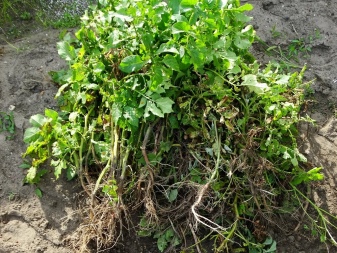
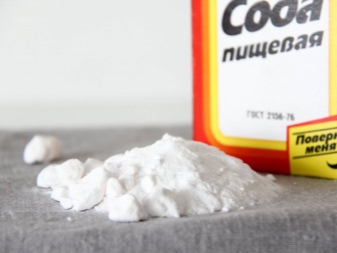
Ash
Ordinary ash will help to remove aphids. To do this, you need to make a special decoction of 300 g of ash (pre-sieved) and 2 liters of water. All this needs to be boiled for 20 minutes, after which the solution is cooled, water is added to 10 liters. The prepared solution can be used for spraying. With the same remedy, it is worth watering the plant at the root, since the broth is an additional fertilizer.
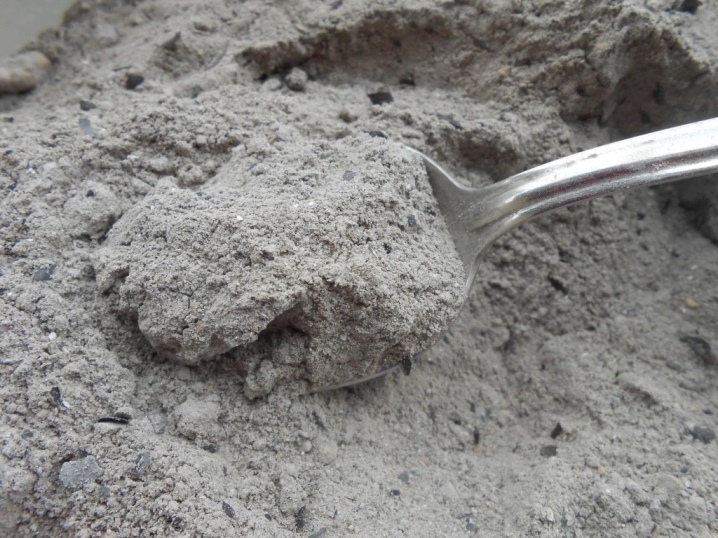
Vinegar
Plain table vinegar will also kill aphids on dill. To do this, you need to dilute 1 teaspoon of the product in 1 liter of liquid. If it is apple cider vinegar, then take 1 tablespoon. For a quicker effect, you can add a pinch of grated laundry soap. Dill must be sprayed in dry weather, repeat the procedure after a week.
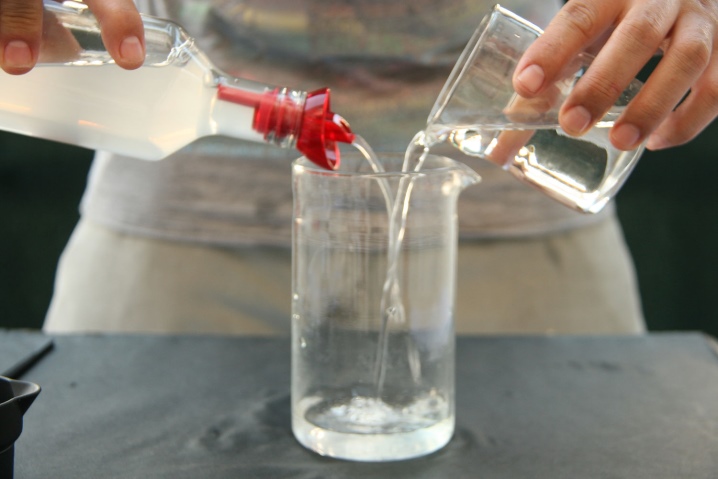
Ammonia
The combination of ammonia and regular laundry soap is quite effective against the pest. To do this, take 5 ml of ammonia and dilute in 1 liter of water, adding a pinch of soap shavings. The composition acts as a pest disposer, as well as a fertilizer.
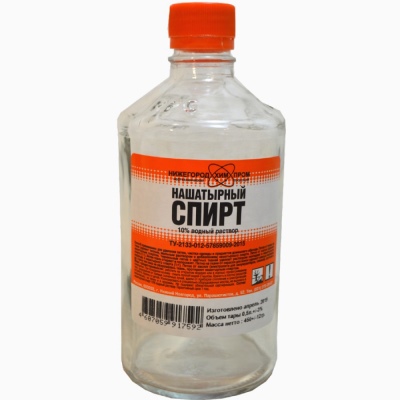
Soda and salt
Salt and soda, which are at hand in every home, will help get rid of aphids. If your dill is infested with aphids, then the best safe remedy after which the herbs can be eaten is regular soda. To do this, you need to prepare a solution - for 1 liter of water 25 g of soda. You can process dill immediately after preparing a product that does not lose its effectiveness for a long time.
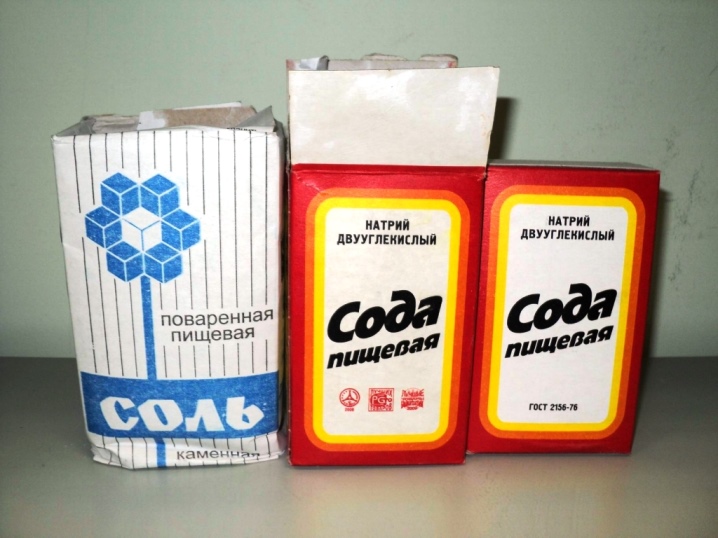
A very simple and safe way is to use salt, but if the dill has not yet been affected by the pest. To do this, sprinkle salt around the dill bush in a thin line. Thanks to this, the bush can be protected, because the ants will not cross the restricted area, and therefore will not bring aphids with them.
Prophylaxis
- To prevent the appearance of aphids, first of all, it is necessary to choose areas for sowing dill with good ventilation and lighting. The seeds should be planted correctly, there should be a space for ventilation between the rows, about 25-30 cm.
- Every year you need to change the location of the garden, but especially not to plant after parsley, celery and caraway seeds, since they are susceptible to the same pests as dill. It is better that plants grow next to the dill that attract ladybirds, which in turn eat aphids. These are garlic, onion and basil.
- Regularly you need to weed and loosen the ground near the plant - the roots will breathe, and the aphids will be destroyed. As a preventive measure, treat folk remedies against aphids, regularly inspect the bush for pests and clear the soil of weeds in time.
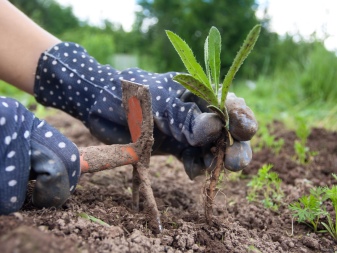
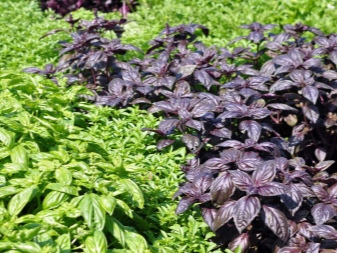













The comment was sent successfully.